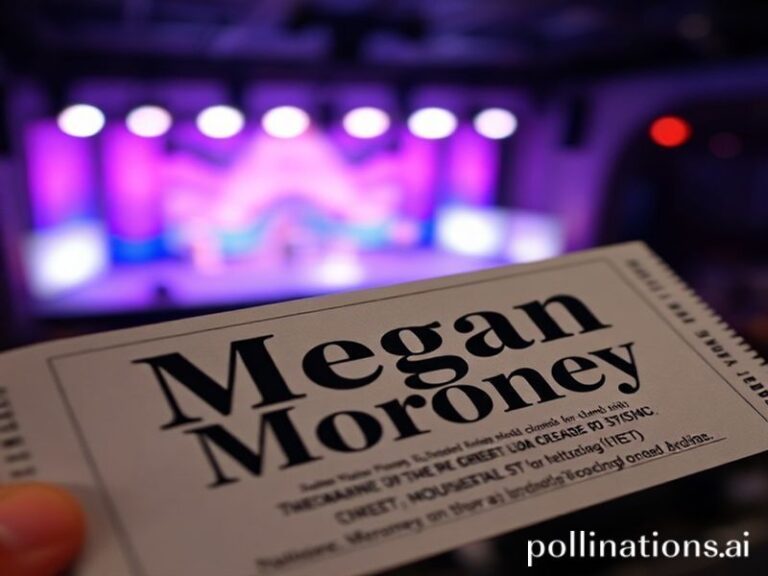South Park’s Global Moisturizer War: How a Cartoon Face-Cream Skirmish Became Worldwide Satire
South Park’s latest export, “Charlie Kirk: The Moisture Crisis,” landed on Paramount+ last night with the delicacy of a drone strike in a gated community. From Nairobi to Naples, viewers watched Colorado’s most culturally insensitive fourth-graders skewer America’s most moisturized conservative influencer, proving once again that satire remains the United States’ most reliable soft-power weapon—second only to its talent for accidentally electing reality-TV presidents.
The episode’s premise is elegantly stupid: Cartman discovers that Charlie Kirk’s face is 92% shea butter by volume and launches a black-market lotion cartel, while Kyle frantically fact-checks Turning Point USA memes on a burner phone. By minute twelve, Kenny has already died from exposure to over-caffeinated ideology; by minute twenty-two, the UN Security Council is holding an emergency session titled “Moisture-Based Disinformation and Other First-World Problems.” It is, in short, exactly the kind of geopolitical theatre you can only finance when your national debt resembles a telephone number.
International reaction arrived faster than a French farmer at a subsidy protest. In Brussels, officials applauded the episode’s depiction of ideological echo chambers as “a cautionary tale about algorithmic radicalization,” which is Eurocrat for “thank God someone else is making fun of Americans so we don’t have to.” Meanwhile, Chinese state media denounced the cartoon as “Western cultural hegemony,” a phrase they trot out whenever a Californian animation studio implies Winnie-the-Pooh might have a weight problem. The Kremlin, ever the opportunist, added South Park to its list of “extremist organizations,” right between Pussy Riot and proper dental care.
What makes this particular roast globally resonant is its timing. Across five continents, citizens are marinating in the same hyper-polarized discourse that South Park lampoons. Brazilian students quote Charlie Kirk tweets to justify deforestation; Indian uncles forward Turning Point memes about “Western decadence” while ordering another round of American whiskey. The show’s writers simply held up a fun-house mirror and discovered the distortion wasn’t theirs—it was ours. The only difference is that Parker and Stone get residuals; the rest of us just get retinal damage from doom-scrolling.
Satire, of course, has always been the world’s cheapest form of diplomacy. When Voltaire mocked Leibniz, the Enlightenment chuckled and then guillotined half of Europe anyway. Today, South Park plays the same role, except the guillotine is now a TikTok filter. The episode’s sharpest gag isn’t the shea-butter subplot—it’s the background shot of a Swedish classroom where kids learn both climate science and the American pledge of allegiance, just to hedge their future options. Somewhere in Davos, a middle-aged man in a fleece vest just snorted kombucha through his nose.
Still, one has to admire the sheer logistical brilliance of exporting American neuroses at scale. While the EU debates whether to label hummus as a “regional specialty,” Paramount+ beams distilled Floridian paranoia into 180 countries in 4K HDR. It is cultural imperialism disguised as cartoon buffoonery, and it works precisely because the audience already speaks fluent outrage. We are all, in effect, unpaid interns in the global content mines, retweeting memes about a cartoon character based on a real person who is himself a meme. If Sartre were alive, he’d log off.
By the time the credits roll, the episode has accomplished what three State Department envoys and two TED talks could not: it has convinced the planet that maybe—just maybe—everyone looks ridiculous when moisturized to a mirror finish. The final shot pans across a burning Amazon, a flooded Venice, and a TikTok dance outside a Ukrainian bomb shelter, while Randy Marsh screams, “You’re not preserving the culture, you’re preserving the drama!” It is, in its own sophomoric way, the most honest foreign-policy briefing of the decade.







